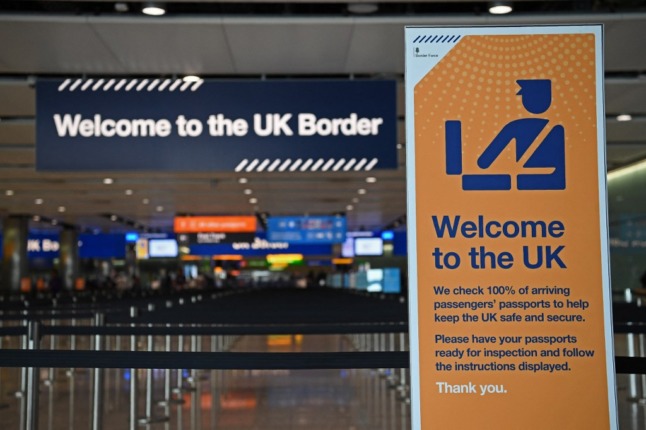The petition points out that millions of Britons living abroad still have to quarantine if they want to return home to visit family and friends, even if they have been vaccinated. This is despite British tourists getting to go-ahead to avoid quarantine on their return.
“Regardless of vaccination status, we face prohibitively lengthy and expensive hotel quarantine if we return home. Many of us have not seen family since before the pandemic and are being prevented from doing so by quarantine restrictions,” the petition read.
Transport Secretary Grant Shapps announced last week that, from July 19th, Britons visiting amber list countries, such as Italy, would no longer have to quarantine on arrival back in the UK, as long as they were fully vaccinated.
However the UK will only accept vaccines administered by the NHS.
READ ALSO: Do Brits living in Italy still have to quarantine on trips to the UK?
The rules mean that UK nationals in Italy who had their jabs in the UK can travel overseas and return without having to quarantine – but those who had their vaccines in Italy will face a 10-day quarantine if they want to travel to the UK to visit friends and family, as well as paying around £160 for the compulsory testing on the second and eighth day of self-isolation.
The announcement sparked anger among UK nationals living abroad, many of whom have not seen family for 18 months or more, as they cannot afford expensive travel testing packages as well as taking an extra 10 days off work to quarantine.
We have written to @grantshapps about the decision to exclude British nationals vaccinated abroad from today's quarantine removal announcement. Read our letter here:https://t.co/bXwtnwHa4A
— British in Europe (@BritishInEurope) July 8, 2021
More than 44,000 people have now signed the petition, prompting a response from the government. If it reaches 100,000 signatures, it will be considered for a debate in Parliament.
The UK government said in its response: “Public health has always been our number one priority and we will not risk throwing away our hard-won achievements which have only been possible through the work of the British people.
“We recognise the impact that restrictions and this pandemic have had on many people. We have made enormous progress this past year in tackling the pandemic across Britain. That progress has been hard won and it is important that we do not risk undermining it now. Yet we are also a nation with ties across the globe.
READ ALSO: How should travellers from the UK quarantine in Italy?
“There are some instances where travellers might be able to get an exemption from needing to quarantine. These exemptions are exceptional and limited, and you will need evidence to support your request.
“Even if you’ve been vaccinated, you still have to follow the same testing and isolation requirements as non-vaccinated people when you return to the country, as per the traffic light system.”
You can sign the petition HERE.



 Please whitelist us to continue reading.
Please whitelist us to continue reading.
Member comments